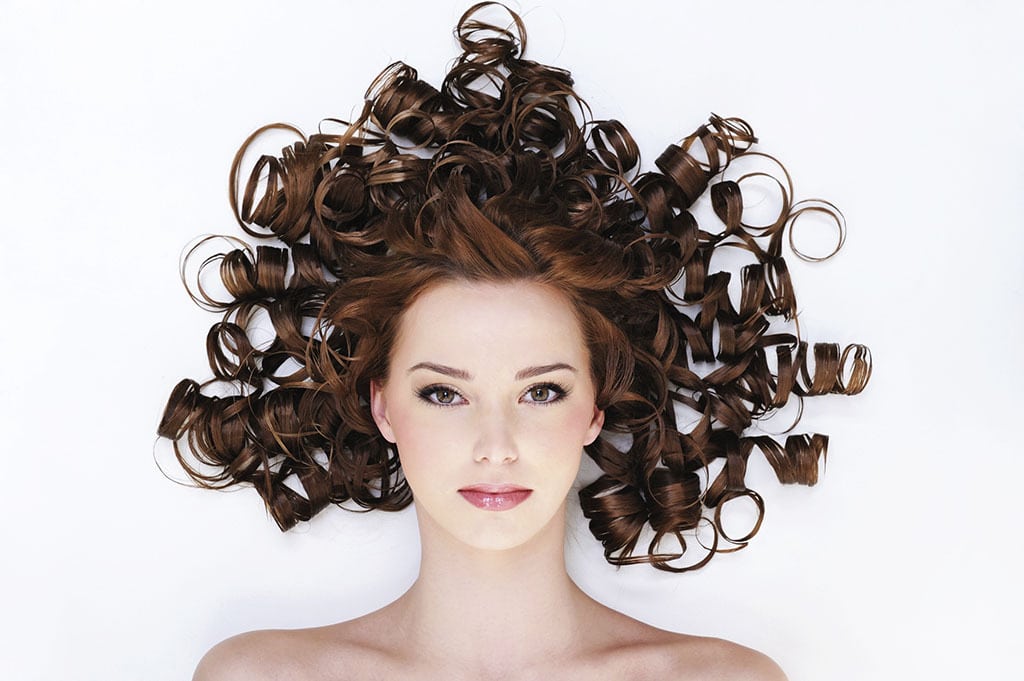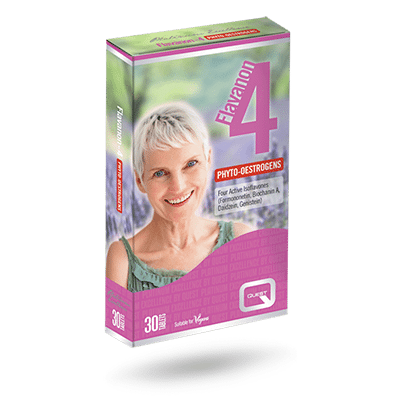Most of us would love to have a full head of thick, shiny Rapunzel worthy hair. Our genes are partly responsible for hair growth and loss, as well as condition and quality. But there are other factors in our lives that can also have a negative effect on hair quality and growth, causing our hair to become weak, dry, lacklustre, or triggering hair loss. These factors can include nutrient deficiencies, stress, hormonal changes, poor circulation, thyroid problems and even over-brushing.
Here are our top tips to encourage optimal hair growth and condition, taking you from hair despair to magnificent mane in 10 easy steps:
Protein Power
Keratin, a substance that provides the strength and structure of hair, is a protein, and our body makes it from the proteins that we eat. So to ensure you have strong hair, eat a variety of protein-containing foods every day: meat, fish, eggs, beans and lentils, nuts and seeds, and dairy products are all good examples. Swap your morning cereal for scrambled eggs on whole grain toast and add a handful of nuts or seeds to your porridge.
Harmonise your hormones
Most women experience some hair loss as they get older. Balancing your hormones can help to minimise these changes. Diet, lifestyle and exercise can make a big difference here. Herbs such as black cohosh and red clover can also help balance hormone levels naturally. Try vegan friendly, Flavanon 4. Taking a little helping hand from Mother Nature, Quest has harnessed the natural healing powers of the red clover, which is used in both traditional Chinese and Western Folk medicine, to help balance oestrogen levels safely and simply.
Keep grey at bay with Biotin
Biotin is one of the B vitamins and its deficiency has been linked to greying and hair loss, and it is thought to be so vital primarily because of its role in the manufacturing of proteins, including as keratin. Specific biotin-rich foods include brown rice, soya beans, lentils, barley and oats, as well as nuts and seeds such as walnuts, pecans, almonds and sunflower seeds. So a breakfast of wholegrain oat porridge with plenty of nuts and seeds added is not only a good way to get protein, but also a fantastic biotin-booster.
Healthy fats for healthy hair
If you have dry, brittle hair, or a dry or scaly scalp, you could be deficient in essential fatty acids. As most of us know, fat is not all bad, and the essential fats have many vital roles in the body including maintenance of healthy skin, scalp and glossy hair. Oily fish, raw seeds and nuts, cold-pressed flaxseed oil and avocadoes all supply good levels of healthy fats. Try a mashed avocado with lemon juice and black pepper on a slice of toast for a healthy hair-loving snack. Not a fan of fish? Try taking regularly Quest Vitamins’ Super Omega 3-6-9 to boost your Omega levels.
Ditch the sugar
Sugar is an ‘anti-nutrient’, meaning it provides no nutritional benefits of its own, and actually uses up nutrients in the body to process it, including those that you need for healthy hair. Refined carbohydrates such as white bread, pasta, white rice and anything else made with white flour have a similar effect, as they have had all the vital nutrients stripped away from them, and are quickly absorbed and turned into sugar in the blood. So replace your afternoon biscuit with a piece of fruit and a few nuts.
Iron for strong locks
One of the primary causes of hair loss in women before menopause is low levels of iron. This results in loss and thinning of the hair all over the scalp, although it can be worse on the top. If this matches your symptoms, ask your doctor to test your ferritin levels (ferritin is the ‘storage’ form of iron in the body): anything below 40 ng/ml can trigger hair loss, even if this is not considered to be below the ‘normal’ range. The best sources of iron are meats, beans and lentils, green leafy vegetables and seeds such as sunflower and pumpkin seeds. You may also need an iron supplement if you are found to be deficient. Go for Once A Day Iron Plus.
Circulation, circulation, circulation
One of the reasons for hair loss and poor hair quality can simply be reduced circulation to the scalp, meaning fewer nutrients are available to the hair follicles. Vitamin C and bioflavonoids in fruits and vegetables can support healthy blood vessels, so make sure you get at least your five-a- day, if not seven or ten! Spices such as ginger, cinnamon and cayenne can also stimulate the circulation and are great winter warmers to boot. Regular exercise is important to boost the circulation too, as well as for its many other health benefits.
Keep it natural
Some chemicals in hair treatment products can cause a reaction on the scalp, which affects hair growth and quality. Some chemicals can also be drying for the hair. Look for more natural alternatives at your health food store.
Avoid drastic weight loss diets
Very low-calorie diets are a common trigger of hair loss. Low-calorie diets often do not provide enough essential fats and protein, vitamins and minerals to nourish the hair. If you need to lose weight, it can be far better to choose a healthy eating plan such as a low-GL (low glycaemic load) diet, and make sure you are including protein with every meal and a source of essential fats every day. Taking a multivitamin and mineral can also support your nutrient levels while you are losing weight.
100 brushes a day?
It may go against the old wives tale, but too much brushing can actually break the hair and cause more to fall out. Never brush your hair when it’s wet – use a wide-tooth comb instead, or ideally leave it to dry naturally before brushing. Tight ponytails or other hairstyles that pull on the hair can also affect its condition and increase hair loss, so avoid these if you can. Ensuring you have regular trims – especially if you have long hair – also reduces breakage and hair loss.[:eu]Most of us would love to have a full head of thick, shiny Rapunzel worthy hair. Our genes are partly responsible for hair growth and loss, as well as condition and quality. But there are other factors in our lives that can also have a negative effect on hair quality and growth, causing our hair to become weak, dry, lacklustre, or triggering hair loss. These factors can include nutrient deficiencies, stress, hormonal changes, poor circulation, thyroid problems and even over-brushing.
Here are our top tips to encourage optimal hair growth and condition, taking you from hair despair to magnificent mane in 10 easy steps:
Protein Power
Keratin, a substance that provides the strength and structure of hair, is a protein, and our body makes it from the proteins that we eat. So to ensure you have strong hair, eat a variety of protein-containing foods every day: meat, fish, eggs, beans and lentils, nuts and seeds, and dairy products are all good examples. Swap your morning cereal for scrambled eggs on whole grain toast and add a handful of nuts or seeds to your porridge.
Harmonise your hormones
Most women experience some hair loss as they get older. Balancing your hormones can help to minimise these changes. Diet, lifestyle and exercise can make a big difference here. Herbs such as black cohosh and red clover can also help balance hormone levels naturally. Try vegan friendly, Flavanon 4. Taking a little helping hand from Mother Nature, Quest has harnessed the natural healing powers of the red clover, which is used in both traditional Chinese and Western Folk medicine, to help balance oestrogen levels safely and simply.
Keep grey at bay with Biotin
Biotin is one of the B vitamins and its deficiency has been linked to greying and hair loss, and it is thought to be so vital primarily because of its role in the manufacturing of proteins, including as keratin. Specific biotin-rich foods include brown rice, soya beans, lentils, barley and oats, as well as nuts and seeds such as walnuts, pecans, almonds and sunflower seeds. So a breakfast of wholegrain oat porridge with plenty of nuts and seeds added is not only a good way to get protein, but also a fantastic biotin-booster.
Healthy fats for healthy hair
If you have dry, brittle hair, or a dry or scaly scalp, you could be deficient in essential fatty acids. As most of us know, fat is not all bad, and the essential fats have many vital roles in the body including maintenance of healthy skin, scalp and glossy hair. Oily fish, raw seeds and nuts, cold-pressed flaxseed oil and avocadoes all supply good levels of healthy fats. Try a mashed avocado with lemon juice and black pepper on a slice of toast for a healthy hair-loving snack. Not a fan of fish? Try taking regularly Quest Vitamins’ Super Omega 3-6-9 to boost your Omega levels.
Ditch the sugar
Sugar is an ‘anti-nutrient’, meaning it provides no nutritional benefits of its own, and actually uses up nutrients in the body to process it, including those that you need for healthy hair. Refined carbohydrates such as white bread, pasta, white rice and anything else made with white flour have a similar effect, as they have had all the vital nutrients stripped away from them, and are quickly absorbed and turned into sugar in the blood. So replace your afternoon biscuit with a piece of fruit and a few nuts.
Iron for strong locks
One of the primary causes of hair loss in women before menopause is low levels of iron. This results in loss and thinning of the hair all over the scalp, although it can be worse on the top. If this matches your symptoms, ask your doctor to test your ferritin levels (ferritin is the ‘storage’ form of iron in the body): anything below 40 ng/ml can trigger hair loss, even if this is not considered to be below the ‘normal’ range. The best sources of iron are meats, beans and lentils, green leafy vegetables and seeds such as sunflower and pumpkin seeds. You may also need an iron supplement if you are found to be deficient. Go for Once A Day Iron Plus.
Circulation, circulation, circulation
One of the reasons for hair loss and poor hair quality can simply be reduced circulation to the scalp, meaning fewer nutrients are available to the hair follicles. Vitamin C and bioflavonoids in fruits and vegetables can support healthy blood vessels, so make sure you get at least your five-a- day, if not seven or ten! Spices such as ginger, cinnamon and cayenne can also stimulate the circulation and are great winter warmers to boot. Regular exercise is important to boost the circulation too, as well as for its many other health benefits.
Keep it natural
Some chemicals in hair treatment products can cause a reaction on the scalp, which affects hair growth and quality. Some chemicals can also be drying for the hair. Look for more natural alternatives at your health food store.
Avoid drastic weight loss diets
Very low-calorie diets are a common trigger of hair loss. Low-calorie diets often do not provide enough essential fats and protein, vitamins and minerals to nourish the hair. If you need to lose weight, it can be far better to choose a healthy eating plan such as a low-GL (low glycaemic load) diet, and make sure you are including protein with every meal and a source of essential fats every day. Taking a multivitamin and mineral can also support your nutrient levels while you are losing weight.
100 brushes a day?
It may go against the old wives tale, but too much brushing can actually break the hair and cause more to fall out. Never brush your hair when it’s wet – use a wide-tooth comb instead, or ideally leave it to dry naturally before brushing. Tight ponytails or other hairstyles that pull on the hair can also affect its condition and increase hair loss, so avoid these if you can. Ensuring you have regular trims – especially if you have long hair – also reduces breakage and hair loss.


